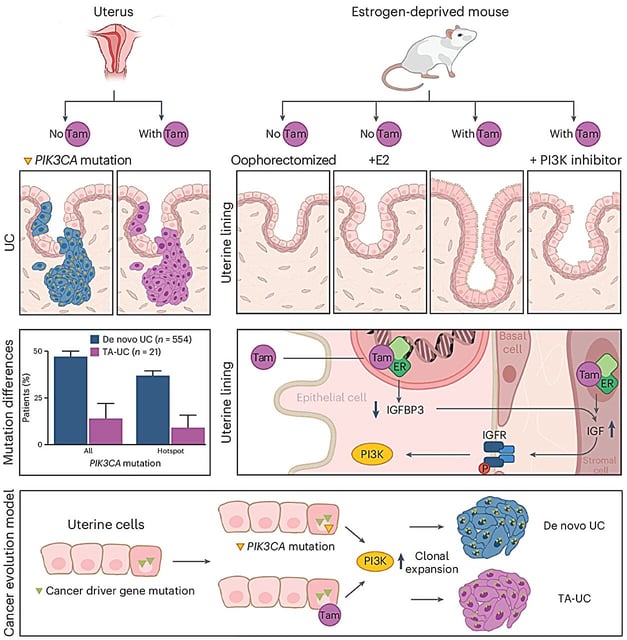Overview
- Nature Genetics reports that tamoxifen directly activates PI3K signaling in uterine cells, offering a molecular explanation for the therapy’s known secondary cancer risk.
- Tamoxifen‑associated uterine tumors showed markedly fewer PIK3CA mutations than other uterine cancers (14% versus 48%), consistent with drug‑driven pathway activation.
- In mice, tamoxifen increased PI3K‑AKT activity and uterine cell growth through IGF1 signaling compared with estrogen or no treatment.
- Co‑treatment with the PI3K inhibitor alpelisib blunted tamoxifen‑induced signaling, reduced IGF1 receptor activation, and curtailed cell proliferation in the model.
- Epidemiologic studies cite a 2‑ to 7‑fold relative risk increase for uterine cancer within 2–5 years of tamoxifen therapy, though the absolute risk remains low and authors call for clinical research on combining tamoxifen with selective PI3K inhibitors.
